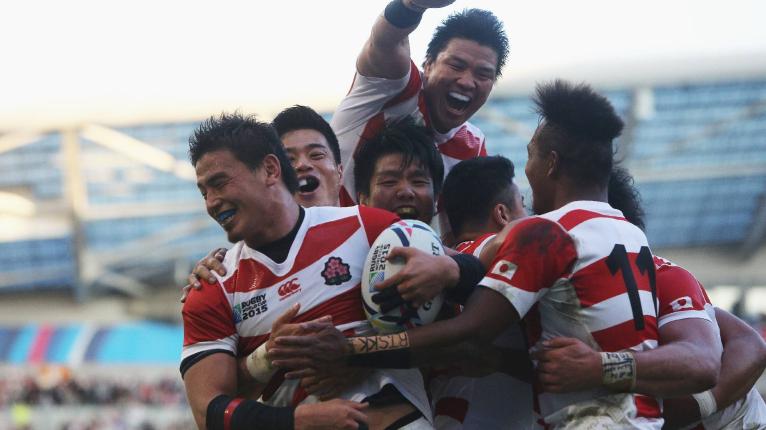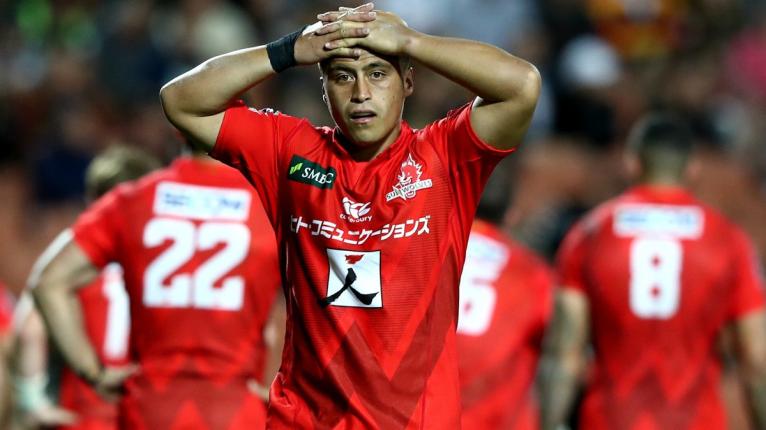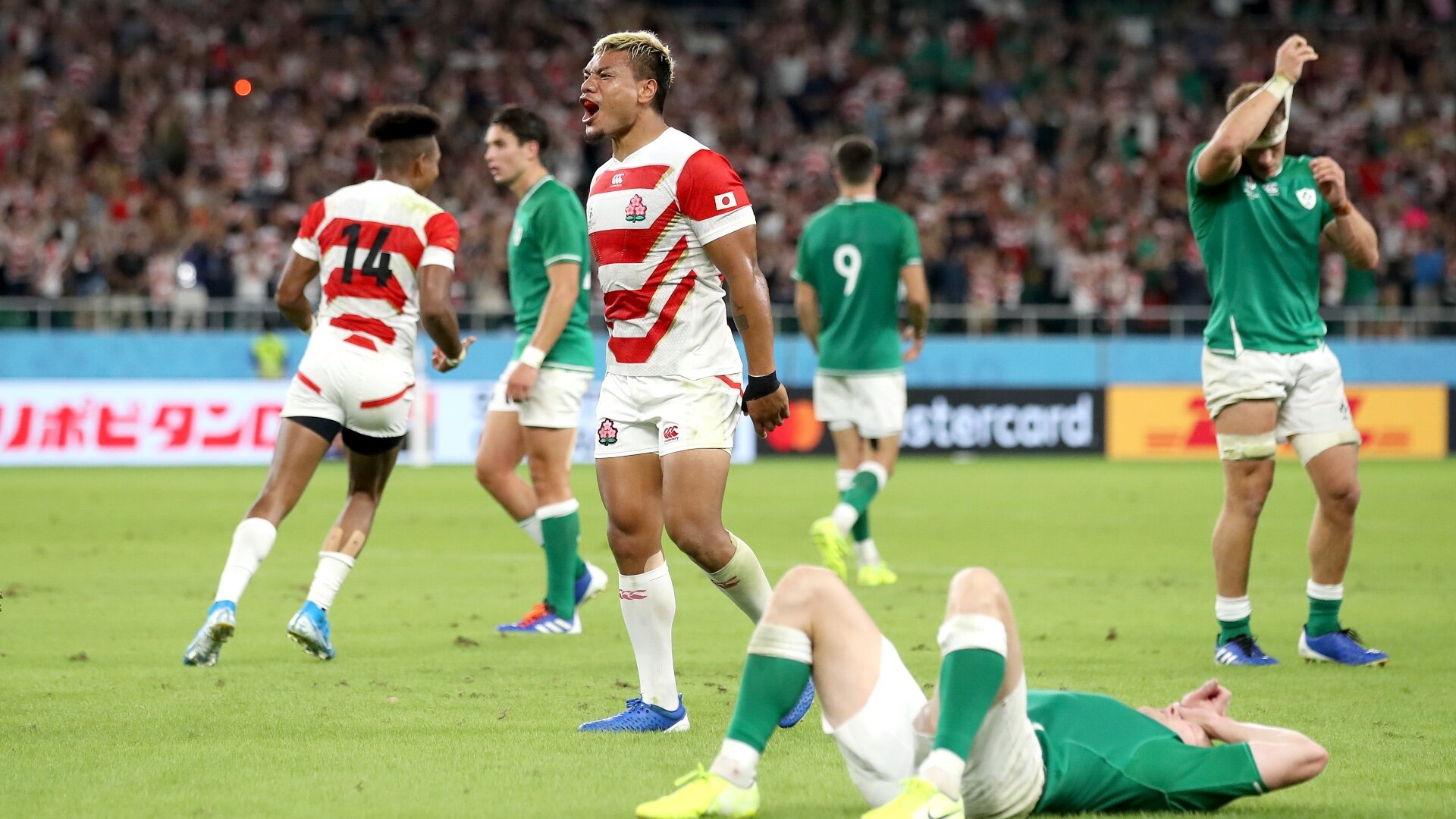Rugby needs Japan more than Japan needs rugby

In 2007, Argentina’s historic run to the third/fourth place playoff game heralded their subsequent introduction to the Rugby Championship and the Jaguares’ inclusion in Super Rugby. Though that same mark will be hard to reach this year for Japan, the 2019 Rugby World Cup should be a portent for the Brave Blossoms’ addition to an annual tier one competition.
It was a remarkable achievement from Argentina back in 2007, with Los Pumas denied a regular source of games through an annual competition with the best teams in the world, although a golden generation of players spread across Europe, with a particularly heavy concentration in France, were able to knock off Ireland, Scotland and France (twice) on their way to the bronze medal.
Five years later, Argentina were added to the Tri-Nations and the tournament was rebranded as the Rugby Championship. They had performed well at the 2011 Rugby World Cup, too, finishing second to England in Pool B and exiting at the quarter-final stage at the hands of New Zealand, although they were able to condemn Scotland to a group stage exit in the process. Within four years of entering the Rugby Championship, the Jaguares franchise was added to Super Rugby, with the Buenos Aires-based side making it all the way to the grand final earlier this year.
Whilst Japan do not have a golden generation of players that compares to that Argentinean group of 2007, they are beginning to show that they can consistently compete at a higher level. From the Miracle in Brighton against South Africa four years ago to the tournament-making win over Ireland in Shizuoka last week, Japan are showing that they are ready to move up to international rugby’s top table.

For years, it was debated whether it should be the Six Nations or the Tri-Nations who let Argentina into the fold, with options such as Argentina playing out of Spain and entering the European competition among those mooted. Neither tournament seemed to want to break up the status quo, until Argentina’s consistency at a higher level forced the hands of SANZAR.
That said, there is something very wrong in the rugby world if Japan, like Argentina, have to go around cap in hand, begging for admission to either tournament. The Six Nations and the Rugby Championship should be biting Japan’s hand off to get them involved in their respective competitions.
Japan, as a nation, ticks many of the boxes that rugby so heavily covets. In a 2012 survey, Japan was recorded to have 1522 rugby clubs, something which would rank them 5th in the world, and 122,368 players, a mark which would see them sit at 6th in a similar ranking. It competes in popularity with team sports such as football and baseball, although there is scope there for further growth, in a country of 126 million people.
Of course, quantity of player and club counts for little if the quality isn’t there, although there is now sufficient evidence that the nation has both of those attributes. Players such as Kazuki Himeno, Kenki Fukuoka and Yu Tamura have embedded themselves as cornerstones of Jamie Joseph’s side alongside a number of the players that have qualified on residency for the national team. That run of residency players shouldn’t dry up anytime soon given the desirable destination that Japan is to play club rugby in, but there is also an increasingly well-functioning pathway for bringing through youngsters of promise.
The high school and university game varies in quality across the nation, though the Japanese U20 side have begun to establish themselves in the top tier of age-grade rugby, securing their place in the World Rugby U20 Championship this past season, with Scotland instead dropping down into the Trophy competition. That side is pushing through talented individuals like Kosuke Horikoshi and Tevita Tatafu, as well as the team’s captain for the last two seasons, Shota Fukui. With this calibre of player contending for senior inclusion, it seems as though Japan will be able to maintain this level of play over the long-term.
Then factor in Japan’s economy and the potential commercial benefits of having the Brave Blossoms in an annual tier one tournament, and the Six Nations and Rugby Championship, particularly the latter, should be tripping over themselves to bring the nation into the fold. If, as many critics have suggested, World Rugby’s proposed Nations Championship was driven by SANZAAR concerns over the growing disparity in financial strength between the southern and northern hemispheres, then embracing Japan, who have ironically seen the Sunwolves cut from Super Rugby, should be a priority.

What holds back nations such as Georgia and Fiji is the lack of financial impact that they would project to bring to a competition. With the Rugby World Cup currently being embraced throughout Japan, inspiring wins being recorded by the national team and proposals in place to rebrand and further develop what would be the top tier of club rugby in the country, the commercial potential of Japan is exciting, with the country boasting the world’s third-highest GDP.
Geographically and logistically, they are a better fit in the Rugby Championship, given the time zone benefits of playing with Australia and New Zealand and the fact that tournament only currently has four teams, although the Rugby World Cup has shown a heavy appetite from European audiences to be tuning into rugby in the morning hours. As another northern hemisphere nation, Japan’s domestic season would fit much more conveniently with that of the Six Nations’ members.
Whether as an addition to the Six Nations and a bye week process incorporated, admittedly a challenge given the density of the season schedule currently, or into the southern hemisphere tournament and a move away from the round robin approach to a schedule that sees teams play each other just once, Japan needs to be embraced by one of the two top tier tournaments.
If they make the quarter-finals in a week’s time when they play Scotland, it will only add further fuel to the fire of their inclusion. If they don’t, they will, for the second tournament in a row, have recorded three wins in the group stage and still not made the knockouts. That is an achievement in itself.
From the population and player numbers to the enticing commercial potential, the Rugby World Cup hosts should not be made to beg for more in the next cycle. To put it bluntly, rugby needs Japan more than Japan needs rugby.
Watch: Jamie Joseph to re-sign with Japan?















